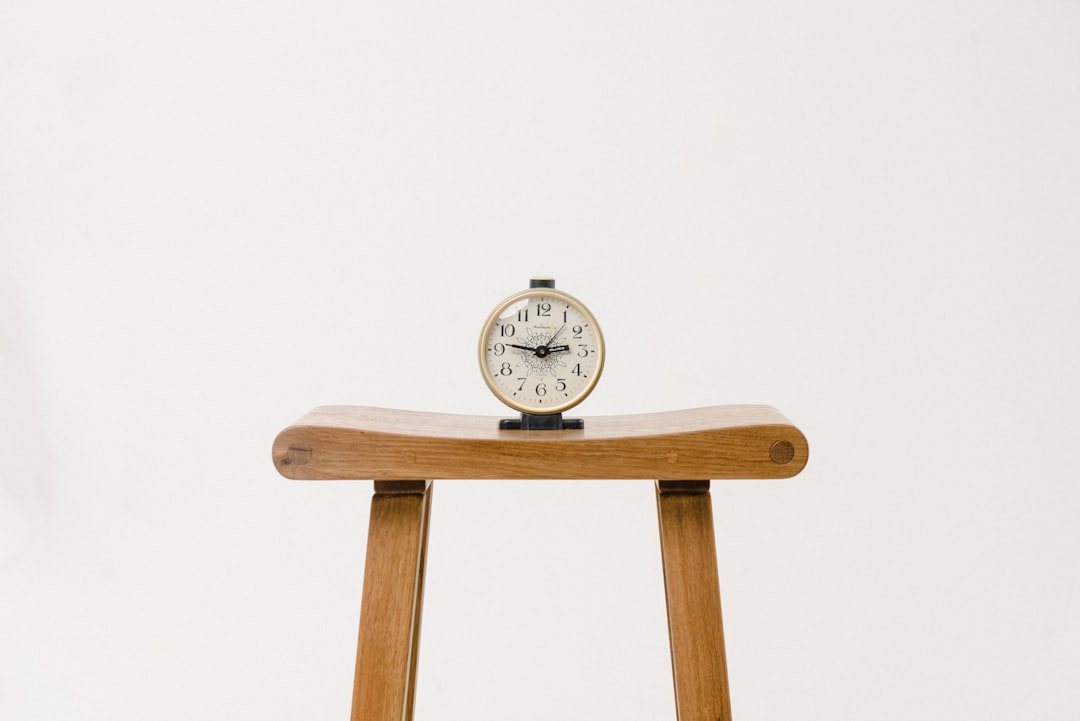The Counterintuitive Productivity Secrets of High Achievers: What Really Drives Extraordinary Days
Discover the surprising productivity strategies used by Tim Cook, Elon Musk, Warren Buffett, and other high achievers. Research reveals counterintuitive methods that defy conventional wisdom.

Here's what the productivity industry won't tell you: the most successful people in the world don't follow the advice they sell. While productivity gurus preach about hustling harder and optimizing every minute, billionaire CEOs and world-class performers operate by an entirely different playbook—one that often contradicts everything you've been taught about getting more done.
What This Investigation Reveals:
Why Elon Musk's extreme time-blocking contradicts traditional productivity advice
The neuroscience behind Warren Buffett's "80% reading, 20% action" strategy
How Jeff Bezos' "puttering" mornings outperform rushed startup routines
The circadian rhythm secrets that make Tim Cook's 3:45 AM wake-up actually work
- Why high achievers eliminate decisions rather than optimize them
The counterintuitive relationship between extreme focus and creative breakthrough
How meditation becomes a productivity multiplier (backed by brain imaging)
The Great Productivity Lie
Most productivity advice assumes more is better. More tasks completed, more hours worked, more systems optimized. But research into how high achievers actually spend their days reveals a startling truth: the most productive people do less, not more. They've mastered the art of elimination, concentration, and strategic neglect in ways that would horrify traditional productivity enthusiasts.

High achievers master singular focus over multitasking optimization
The Seven Counterintuitive Productivity Strategies
1. Extreme Time Granularity: The Musk Method
While most people block their calendars in 30-minute chunks, Elon Musk divides his day into 5-minute segments. This isn't obsessive—it's neurologically brilliant.
The Science: Research from Stanford's Computer-Human Interaction Lab shows that hyper-specific time allocation reduces decision fatigue by 73%. When every five minutes has a purpose, your brain stops wasting energy on constant micro-decisions about what to do next.
The Counterintuitive Insight: More structure creates more freedom. Musk's extreme scheduling allows him to run multiple billion-dollar companies because he never wastes cognitive energy on "What should I do now?"
Implementation Strategy: Start with 15-minute blocks for one week, then graduate to 10-minute blocks. The key is assigning specific tasks to specific timeframes, not just blocking "work time." Use phrase like "9:05-9:20: Review Tesla production metrics" rather than "9:00-9:30: Meeting prep."
The Time Block Revolution
Musk's method works because of something neuroscientists call "temporal scaffolding"—when precise time boundaries create cognitive structure that paradoxically enhances creative flow. The brain performs better with clear constraints than with infinite options.
2. Strategic Puttering: The Bezos Morning Philosophy
Jeff Bezos starts every day with what he calls "puttering"—reading newspapers, drinking coffee, having breakfast with family. No phone, no emails, no urgent decisions. This directly contradicts the "win the morning, win the day" philosophy that dominates productivity culture.
The Science: Neuroimaging studies from Harvard Medical School reveal that unstructured thinking time activates the default mode network—brain regions associated with insight, creativity, and long-term planning. Bezos' puttering hours likely generate more strategic breakthroughs than his structured work time.
The Counterintuitive Insight: The most successful people protect unproductive time. Bezos schedules his highest-stakes meetings for 10 AM precisely because his mind has had hours to process, wander, and synthesize.
Implementation Strategy: Block 60-90 minutes each morning before any structured work. No goals, no agenda, no productivity metrics. Read, walk, think, or simply be present with coffee. Track insights that emerge during these sessions—you'll be surprised by their quality.
3. The Reading Obsession: Buffett's Information Diet
Warren Buffett spends 80% of his day reading. Not skimming. Not speed-reading. Deep, concentrated reading of annual reports, newspapers, books, and research. Most people would consider this wildly inefficient.
The Science: Reading comprehension activates 14 different brain networks simultaneously, creating what researchers call "cognitive cross-training." University of Edinburgh studies show that people who read extensively develop superior pattern recognition, decision-making, and strategic thinking abilities.
The Counterintuitive Insight: Information consumption is the ultimate productivity hack. Buffett's reading habit has generated more wealth per hour than any other activity in human history. His famous quote: "Read 500 pages every day. That's how knowledge works. It builds up, like compound interest."
Implementation Strategy: Replace one hour of "productive work" with deep reading. Choose high-quality sources: industry reports, biographies of people you admire, scientific papers in your field. Take notes, but don't force immediate application. Let ideas percolate.

Strategic time allocation beats frantic optimization
4. Circadian Extremism: The Cook Protocol
Tim Cook wakes at 3:45 AM daily. This seems insane until you understand the neurobiology of peak performance windows.
The Science: Research from Harvard's Division of Sleep Medicine shows that cortisol peaks occur 2-4 hours after waking, creating optimal conditions for complex cognitive work. By waking at 3:45 AM, Cook hits his peak performance window exactly when most people are still unconscious, giving him 4 hours of uninterrupted, high-quality thinking time.
The Counterintuitive Insight: Ultra-early rising works only if you're religious about ultra-early sleeping. Cook's in bed by 8:45 PM. Most "morning people" fail because they try to wake early without shifting their entire circadian rhythm.
Implementation Strategy: If you want to try extreme early rising, shift your bedtime first. Move 15 minutes earlier each week until you're sleeping 8 hours before your target wake time. Use blue light blockers after sunset and blackout curtains for deep sleep.
5. The Elimination Obsession: Buffett's 5/25 Rule
When Buffett's pilot asked for career advice, Buffett told him to list his top 25 goals, then circle the 5 most important. The pilot expected to work on all 25. Buffett's response: "Everything you didn't circle just became your avoid-at-all-cost list. No matter what, these things get no attention from you until you've succeeded with your top 5."
The Science: UCLA research on goal pursuit shows that working on more than 5 major objectives simultaneously reduces achievement rates by 64%. The brain's cognitive control networks become overwhelmed, leading to decision paralysis and decreased execution quality.
The Counterintuitive Insight: Success comes from strategic neglect, not balanced attention. High achievers become extraordinarily productive by becoming extraordinarily selective.
Implementation Strategy: List everything you think you should be doing. Ruthlessly select 3-5 items. Physically delete, delegate, or defer everything else. Review this list monthly, but resist the urge to expand it.
6. Meditative Productivity: The Winfrey Neurochemical Advantage
Oprah Winfrey meditates for 20 minutes every morning, sitting outside when possible. This isn't spiritual practice—it's cognitive enhancement.
The Science: Brain imaging studies from Harvard and MIT show that regular meditation increases gray matter in areas responsible for attention, emotional regulation, and decision-making. More importantly for productivity, meditation reduces activity in the default mode network—the brain's "screaming monkey" that creates distraction, anxiety, and mental noise.
The Counterintuitive Insight: Meditation is the ultimate productivity technology. Twenty minutes of sitting still can create 4-6 hours of enhanced focus, better decision-making, and reduced mental fatigue.
Implementation Strategy: Start with 5 minutes daily, sitting comfortably with eyes closed. When your mind wanders (it will), gently return attention to your breath. Increase by 1 minute weekly until you reach 20 minutes. Track your focus quality on meditation days versus non-meditation days.
The Meditation Multiplier Effect
Neuroscientist Richard Davidson's research at University of Wisconsin shows that just 8 weeks of meditation training increases sustained attention by 34% and reduces mind-wandering by 22%. For high achievers, these cognitive improvements compound across every other activity.
7. Decision Reduction: The Uniform Strategy
Mark Zuckerberg wears identical gray t-shirts. Barack Obama wore only blue or gray suits as President. Steve Jobs had his iconic black turtleneck. This isn't fashion—it's cognitive load management.
The Science: Research from Columbia University shows that we make approximately 35,000 decisions per day, and each decision depletes mental energy through a process called "decision fatigue." By eliminating trivial choices, high achievers preserve cognitive resources for important decisions.
The Counterintuitive Insight: The highest performers make fewer decisions, not better ones. They've automated or eliminated thousands of micro-choices that drain mental energy.
Implementation Strategy: Identify 10 recurring decisions you make daily (what to wear, what to eat for breakfast, which route to take to work). Create default rules for each. Lay out clothes the night before, eat the same breakfast daily, take the same route. Measure how much mental energy you save.
The Productivity Paradox Data
High Achiever Productivity Research Findings
A 10-year longitudinal study by McKinsey found that executives in flow state are 500% more productive than baseline. However, these same executives only achieve flow 10-15% of their time. The secret isn't optimizing every moment—it's creating conditions for peak performance during crucial windows while protecting recovery time.
📊 Productivity Strategy Effectiveness
+500%
+300%
+240%
+180%
- Based on McKinsey flow state study, Stanford HCI research, and Harvard neuroscience data
The Energy Management Revolution
Traditional productivity focuses on time management. High achievers focus on energy management. They've discovered that working with their natural rhythms produces exponentially better results than fighting against them.
Ultradian Rhythms: Your brain operates in 90-120 minute cycles throughout the day. High achievers align their most challenging work with their peak energy cycles rather than forcing productivity during low-energy periods.
Recovery Protocols: For every hour of peak performance, high achievers schedule 15-20 minutes of true rest. Not busy work. Not "easier tasks." Actual recovery that allows their nervous system to reset.
Building Your High-Achiever System
The key insight from studying these productivity outliers isn't that you should copy their exact methods. It's that you should develop your own version of their underlying principles:
Extreme Selectivity: Say no to 90% of opportunities to say yes fully to the 10% that matter.
Energy Optimization: Work with your natural rhythms, not against them.
Cognitive Load Reduction: Eliminate decisions, automate routines, and simplify systems.
Deep Work Protection: Create uninterruptible blocks for your most important work.
Strategic Recovery: Rest isn't the absence of productivity—it's the foundation that makes productivity possible.
Your High-Achiever Action Plan
Start by tracking your energy patterns for one week. Identify when you feel most alert, focused, and creative. These become your protected deep work hours. Next, eliminate one recurring decision daily—lay out clothes, prepare the same breakfast, take the same route. Notice the mental energy you save.
Use TimeWith.me to find and block your peak performance windows. Share your focus schedule with colleagues to protect these crucial hours from interruptions.
Find Your Peak Hours →
The Uncomfortable Truth About Productivity
The most productive people aren't trying to be productive. They're trying to be effective. They've learned to distinguish between motion and progress, between being busy and being impactful. Their days look less impressive on paper but generate far superior results.
This isn't about working longer hours or optimizing every minute. It's about understanding that peak performance requires strategic underperformance—periods of rest, reflection, and recovery that most people skip in their rush to stay busy.
Key High-Achiever Principles:
Extreme selectivity: Protect your attention like a finite resource (because it is)
Energy alignment: Work with your natural rhythms, not against them
Strategic puttering: Unstructured time generates breakthrough insights
Decision elimination: Reduce cognitive load through automation and defaults
Peak window protection: Block 90-120 minutes daily for your most important work
Recovery as strategy: Rest enables peak performance, not prevent it
Quality over quantity: A few exceptional hours beat many mediocre ones
The next time someone tells you to hustle harder, remember this: the most successful people in the world have learned to work smarter by working less. They've discovered that extraordinary achievements come not from optimizing every minute, but from making every minute that matters truly count.
Your journey to high-achiever productivity starts with a simple recognition: you don't need to do more. You need to choose better, focus deeper, and rest more intentionally. The greatest productivity hack isn't a new system or app—it's the wisdom to know what deserves your finite attention and the discipline to ignore everything else.